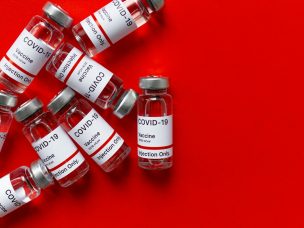New data released from the Africa Health Research Institute in South Africa show that the Pfizer/BioNTech COVID-19 vaccine may be less effective at preventing infection by the Omicron variant. This study offers the first glimpse into how mRNA vaccines fare against the new variant.
The study was conducted by mixing live Omicron virus with sera from individuals double vaccinated against COVID-19. It found that the variant could largely—but not entirely—dodge antibodies elicited by the Pfizer/BioNTech vaccine. In addition, they found a 41-fold reduction in neutralization compared to previous COVID-19 variants.
Despite these results, immunization experts agree that vaccines and booster doses can still help prevent disease severity since they can increase the number of antibodies that can bind to the virus.
Following the release of the study data, Pfizer added its own early data from internal studies that affirmed the results and supported the idea that boosters can improve vaccine efficacy—which is key to preventing severe disease, hospitalization, and death.
Pfizer also indicated they are still evaluating whether a booster dose specific to the Omicron variant is necessary. Sequencing work is underway, and a booster could be ready for trials by March.
Bottom line: patients should continue to get vaccinated, researchers and industry continue to learn more about the Omicron variant and the efficacy of booster doses, and Pfizer will be prepared if Omicron-specific boosters are needed [1].
Source:
[1] Mast, J. (2021, December 8). New studies indicate mRNA vaccines provide limited protection against Omicron, but boosters and new shots may be crucial. Endpoints News. https://endpts.com/new-studies-indicate-mrna-vaccines-provide-limited-protection-against-omicron-but-boosters-and-new-shots-may-be-crucial/










